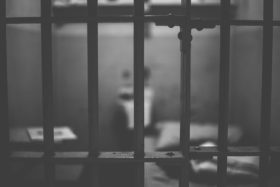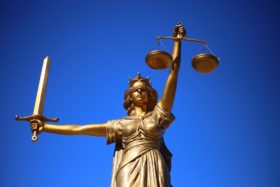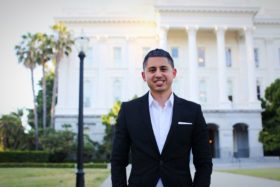
Are you afraid that your criminal record might prevent your application for a green card or citizenship from being approved? You might qualify for Post-Conviction Relief!
Community Legal Services recently won our client post-conviction relief in the form of multiple vacated convictions. Those vacated convictions allowed her to apply for the renewal of her green card, and the clinic is working on her application for Naturalization.
This post-conviction relief is relatively new to California. In 2020, the California Legislature amended Penal Code §1473.7 to allow noncitizens to move to vacate convictions on the basis that the noncitizen had not fully understood the immigration consequences of a plea they made. Many noncitizens may qualify for this relief because the requirement that attorneys inform noncitizens of the immigration consequences of a plea was only added in 2010 in the Supreme Court Decision Padilla v. Kentucky.
If the attorney failed to inform the noncitizen of the immigration consequences, then the non-citizen must prove that they would not have pled guilty with circumstantial evidence. Circumstances must show that the noncitizen would never have pled if they had been informed of the immigration consequences.
For example, in our client’s case, she was not informed of the consequences a conviction for a theft crime would have on her immigration status. Our client would have fought her case in court or pled to another charge if she had known that the conviction could bar her from green card renewal or citizenship.
Thanks to this change in California Law, our clinic is able to offer noncitizens the opportunity to apply for post-conviction relief. While our client obtained relief from vacated convictions, there are other vehicles to obtain relief. Other relief includes expungement for pre-trial diversion, expungements for non-prison sentences, and reduction of felony convictions to misdemeanors. If you are interested in pursuing post-conviction relief, call (916) 340-6080 for an intake or email clsmcg@pacific.edu.
About Michael Dastas
Michael is a third-year law student at University of the Pacific, McGeorge School of Law. He has been a student attorney in the Immigration Clinic since August 2021.

 According to a
According to a 
 As of July 9, 2021, 18 states have legalized marijuana for recreational use and 36 states have legalized marijuana for medical use
As of July 9, 2021, 18 states have legalized marijuana for recreational use and 36 states have legalized marijuana for medical use Deepest condolences to the family and friends of civil rights legend, Justice Cruz Reynoso,
Deepest condolences to the family and friends of civil rights legend, Justice Cruz Reynoso,  The eight third-year students in the Federal Defender Clinic in Spring 2021 have been busy working on every stage of misdemeanor federal cases. “Because of the COVID-19 pandemic, their participation has been remote, but this has not deterred them from ably representing their clients as certified misdemeanor student attorneys in federal court,” says
The eight third-year students in the Federal Defender Clinic in Spring 2021 have been busy working on every stage of misdemeanor federal cases. “Because of the COVID-19 pandemic, their participation has been remote, but this has not deterred them from ably representing their clients as certified misdemeanor student attorneys in federal court,” says  In May 2020, McGeorge alumnus Aaron Brieno, ‘14 joined Professor Cathy Christian as Co-Director of the McGeorge Legislative and Public Policy Clinic. “One of the biggest reasons why I teach is to ensure that students of all backgrounds have access to public policy making tools,” says Brieno, who currently serves as the Deputy Chief of Staff for California State Senator Ben Hueso. “Ideally the Clinic provides students with tools they can bring back to their community as social impact leaders.”
In May 2020, McGeorge alumnus Aaron Brieno, ‘14 joined Professor Cathy Christian as Co-Director of the McGeorge Legislative and Public Policy Clinic. “One of the biggest reasons why I teach is to ensure that students of all backgrounds have access to public policy making tools,” says Brieno, who currently serves as the Deputy Chief of Staff for California State Senator Ben Hueso. “Ideally the Clinic provides students with tools they can bring back to their community as social impact leaders.” The Elder and Health Law (EHL) clinic, a civil practice clinic serving those age 60 and older, offers clients legal representation on matters including protection from physical and financial abuse, estate and end-of-life planning, contract disputes and more. In 2020 alone, the clinic recovered and/or protected $1,424,190 in assets for elders and fine/fees forgiveness.
The Elder and Health Law (EHL) clinic, a civil practice clinic serving those age 60 and older, offers clients legal representation on matters including protection from physical and financial abuse, estate and end-of-life planning, contract disputes and more. In 2020 alone, the clinic recovered and/or protected $1,424,190 in assets for elders and fine/fees forgiveness.